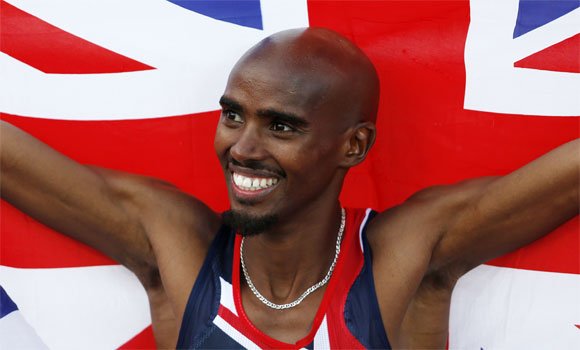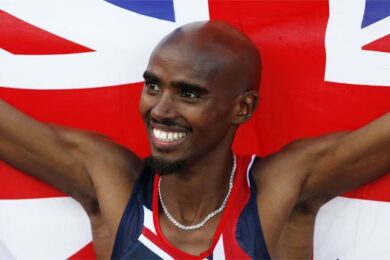One’s own hat is often the most delightful dish. Before the Olympics began, I was about as voiciferous a naysayer against the games as you could be. A life-long sporting inability, complete disinterest in these tedious athletes with their monochrome lives of training, PB obsessions and appalling choices and inane prattling every time one is invited on Desert Island Discs had me, like many, less than enthusiastic about the summer of sports promised by London 2012. That’s even without the bullying practices of LOCOG, the feeling that residents next to the Olympic site were getting nothing and paying all, the corporatisation of everything at the expense of local businesses, the treatment of musicians, the impact on local arts in London – issues covered on these very pages.
In fact, on the last day of these Games, all of these concerns, irritations and frustrations still remain, and none have been undone or overawed by the past three weeks of inspiring swimming, running, riding, diving, sculling, thwacking, grunting, wrestling and flinging. The Olympic dominance of the news schedules as the economy flounders, the Arctic melts at unprecedented speed, and Syria’s implosion continues, has been deplorable. Yet there are enormous positives that we can take from these Olympic Games.
The first, and most obvious, is that I don’t think that we’ll ever again see a serving MP emulating the Right Honourable Member for Cannock Chase Aidan Burley by tweeting, as he did, "Thank God the athletes have arrived! Now we can move on from leftie multicultural crap. Bring back red arrows, Shakespeare and the Stones!". It was nice to imagine that, as the mixed race Jessica Ennis won the bogglingly difficult Heptathlon and Somali-born Mo Farah achieved gold in not just the 10,000 but 5,000 metres, he was stood on the battered poop of the a-historical Good Ship Albion, with its fantasy of white Englishmen (of course of neither Angle nor Saxon immigrant birth), offering four Heil Enochs as that particular lie-dream sank beneath the waves. Of course, this will not silence the EDL or other assorted scumbags of the racist right, but it is a powerful blow.
Then there’s the snapshot of a difference that a year, and perhaps the Games makes, in one small bit of London not too far from the Olympic site, which glows (lighting the omnipresent blimp) from my kitchen window.
Almost exactly a year ago, I wrote a personal view on the riots on Clarence Road, Hackney, where I live. On a very similar night to that, hot, heady, London, just 360-odd days later, there was a very different scene to that of exploding cars, upturned bins, gleefully looting kids, the sense of a punch in the nose of… something. The Olympics will not wipe away the issues of poverty, disaffection, lack of opportunity and materialism that caused the riots, but they do offer an alternative narrative of our local area. As Mo Farah ran the last metres of his 5000 gold, agonised screams turned into exultant cheers outside my open windows in E5. Near to the spot where, almost exactly 12 months prior, a Hackney lady so courageously defended her community from the rioters, now stands a sizzling bbq and drinks table, happy Londoners and Jamaican flags of people ready to celebrate the men’s 4×100 relay.
Across the road, at a packed Aunty Fatty’s West Indian Take Away (mentioned in the riot rant), Jamaican cross and union flag were hung side-by-side. All around, there was a very different, relaxed, happy air, an almost palpable sense of positivity the seemed to affect us all.
This is the Britain that I love. This is the Britain that’s too often forgotten. Or rather suppressed by, on the one hand, Britain natural inclination for cynicism… the assumption that our best years are behind us, and on the other hand by disgusted prejudice – the product of identity angst on one hand and nationalistic pride on the other. It’s not that only now, after a haul of medals, we now have something to be proud of. Anyone who loves this country can find pride in the everyday: way the light shines on the shape of a cloud, the taste of a certain food, the smell of the flora and fauna in particular seasons. It’s more the case that Britain’s athletes, not her artists or architects or engineers, have offered us an alternative route to collective enthusiasm and multicultural integration, in a day and age when the cynical, vainglorious juggling of nonentities – via celebrity culture, idiot footballers, X Factor and reality TV – is the customary stimulus to community spirit and British unity in the early 21st century. Unlike the Jubilee, or indeed most of what is celebrated in Britain, this time our collective pride has nothing to do with nostalgia.
Yet this can all-too-easily go to waste. It’s comes as a great relief that the Coalition have made a spectacular failure of trying to make political capital of the Games. PR boobs abounded, from Jeremy Hunt losing his bell end to a spate of Tory/LibDem infighting more vicious than any event in the Olympic park, to the hilarious own goal of the tweeted image of David Cameron taking a mid-afternoon break (when the rest of us were working) to watch the boxing. And let’s not forget that Aidan Burley isn’t the only Tory blasting multicultural Britain. A short while ago, our Prime Minister made a confused speech in which he declared that multi-culturalism had "failed". But no doubt the Coalition will continue their efforts to to capitalise on the Olympic bonhomie. It’s vitally important this is resisted.
The ‘Inspire a generation’ slogan, and plans to increase sports participation among children, were what brought the Olympics to London. Yet Cameron’s enthusiasm for compulsory sports that don’t include "indian dance" but instead focus on competition and building team spirit (in the experience of many an oxymoron, a falsehood which only ever exists for the talented), is a step that harks back to the myth about the Battle Of Waterloo being won on the playing fields of Eton. That notion seems to have shaped traditionalist sports policy to the present day, the nonsense that clean-limbed youth pummelling each other into the mud somehow makes us better people, better Britons. Rather than team sports, the lesson educationalists should take from these Olympic successes is that individuals ought to be allowed to get on with what suits them best.
Danny Boyle’s fiery celebration of the NHS was a subversive highlight of the brilliant opening ceremony. It’s vital, though, that rollerblading nurses and the metaphorical monsters attacking children in hospital beds should not lead us into political/cultural complacency, as highlighted here by my colleague John Doran. Now the Games are nearly done there must be a fightback for the funding of arts organisations. Just as over recent weeks we’ve proved more than capable of supporting the Olympics’ abundance obscure and unusual pursuits, are not the British public just as capable of supporting, and indeed enjoying, the more oblique examples of British underground music and art.
The ‘legacy’ programme of London 2012 was apparently a key part of why the British capital won the Games, way back in 2005. But aside from potential white elephant theme parks in East London, grooming victors for Brazil 2016, or the chimera of economic regeneration, the real legacy of London 2012 is something quite unexpected. A country in flux which so often leaps schizophrenically between empty jingoism and cringing insecurity, we have been shown how colourful, enthusiastic, welcoming, and pluralist a nation we are, perhaps now more than ever before. As I chow down on my fedora, that’s something I for one can drink to.



